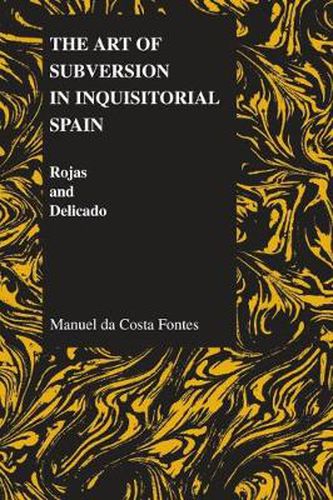Readings Newsletter
Become a Readings Member to make your shopping experience even easier.
Sign in or sign up for free!
You’re not far away from qualifying for FREE standard shipping within Australia
You’ve qualified for FREE standard shipping within Australia
The cart is loading…






Rojas’s Celestina (1499) is perhaps the second greatest work of Spanish literature, right after Don Quixote, and Delicado sought to surpass it with La Lozana andaluza (1530), an important precedent of the picaresque novel. Both works were written during the height of the Inquisition, when the only relatively safe way for New Christian writers of Jewish extraction like Rojas and Delicado to express what they felt about the discrimination they suffered and their doubts regarding the faith that had been forced upon their ancestors was in a covert, indirect manner. Some scholars have detected this subversive element in Rojas’ and Delicado’s corrosive view of the Christian societies in which they lived, but this book goes far beyond such impressionism, showing through abundant textual evidence that these two authors used superficial bawdiness and claims regarding the morality of their respective works as cover to encode attacks against the central dogmas of Christianity: the Annunciation, the Virgin Birth, the Incarnation, and the Holy Trinity. This book, which will generate controversy among Hispanists, many of whom have refused to examine these works for non-Catholic views, will be of interest not only to students and scholars of Spanish literature, but also to those involved in Jewish studies, Medieval European history, and cultural studies. Manuel Da Costa Fontes is Professor of Spanish and Portuguese at Kent State University. The author and editor of many books, he has published widely on the Portuguese ballad, crypto-Judaism, and medieval and Renaissance Spanish literature. His most recent book is Foiklore and Literature: Studies in the Portuguese, Brazilian, Sephardic, and Hispanic Oral Traditions.
$9.00 standard shipping within Australia
FREE standard shipping within Australia for orders over $100.00
Express & International shipping calculated at checkout
Rojas’s Celestina (1499) is perhaps the second greatest work of Spanish literature, right after Don Quixote, and Delicado sought to surpass it with La Lozana andaluza (1530), an important precedent of the picaresque novel. Both works were written during the height of the Inquisition, when the only relatively safe way for New Christian writers of Jewish extraction like Rojas and Delicado to express what they felt about the discrimination they suffered and their doubts regarding the faith that had been forced upon their ancestors was in a covert, indirect manner. Some scholars have detected this subversive element in Rojas’ and Delicado’s corrosive view of the Christian societies in which they lived, but this book goes far beyond such impressionism, showing through abundant textual evidence that these two authors used superficial bawdiness and claims regarding the morality of their respective works as cover to encode attacks against the central dogmas of Christianity: the Annunciation, the Virgin Birth, the Incarnation, and the Holy Trinity. This book, which will generate controversy among Hispanists, many of whom have refused to examine these works for non-Catholic views, will be of interest not only to students and scholars of Spanish literature, but also to those involved in Jewish studies, Medieval European history, and cultural studies. Manuel Da Costa Fontes is Professor of Spanish and Portuguese at Kent State University. The author and editor of many books, he has published widely on the Portuguese ballad, crypto-Judaism, and medieval and Renaissance Spanish literature. His most recent book is Foiklore and Literature: Studies in the Portuguese, Brazilian, Sephardic, and Hispanic Oral Traditions.